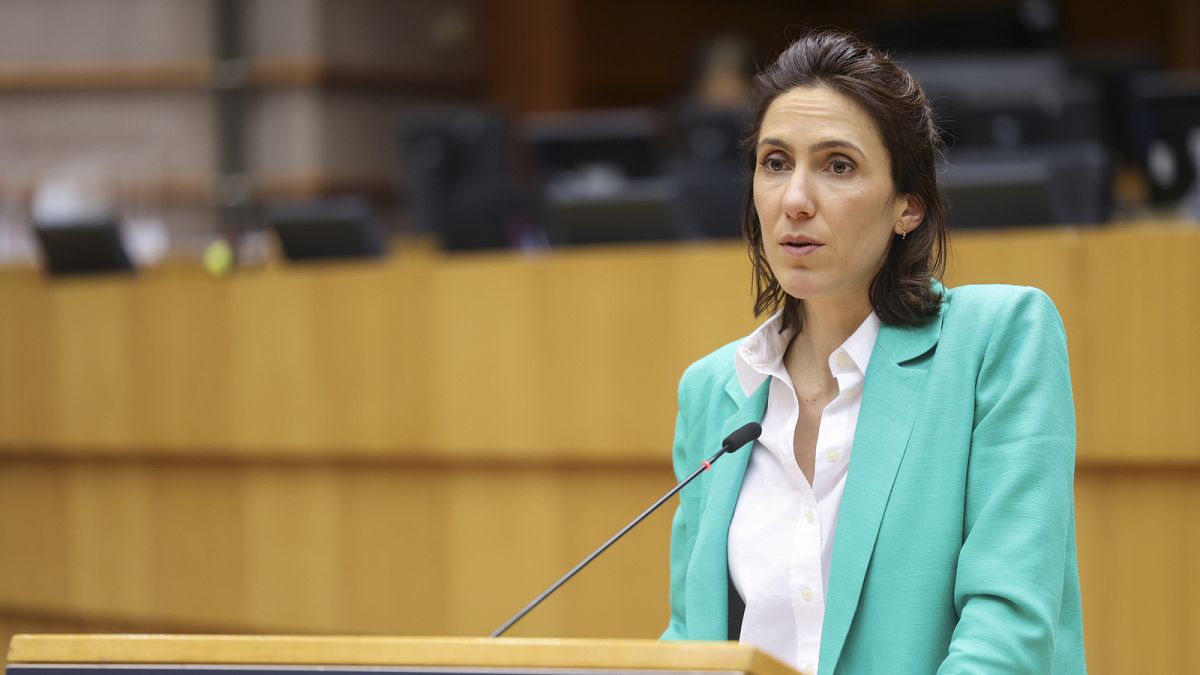The president of the European Parliament’s centrist faction, Valérie Hayer, expressed her disapproval and deep concern over the agreement to form a new government in the Netherlands. The deal involves Geert Wilders’ far-right Party for Freedom (PVV) and the Dutch VVD party, which is a part of Hayer’s Renew Europe group. Wilders, known for his anti-Islam and Eurosceptic views, will enter the government with two other parties, which opposes the values Hayer’s group defends. The coalition agreement, focusing on stricter measures on asylum seekers and reducing international students, goes against a declaration signed by Renew last week. The formation of this government is seen as a worrying development ahead of the upcoming European elections.
In response to the Dutch coalition deal, various political groups across Europe have voiced their concerns. The Party of European Socialists condemned the Liberal and center-right EPP parties for enabling a far-right Dutch government, criticizing the mainstream parties for striking deals with the far-right in several European countries. The European Greens have called on the Liberals to take measures towards the VVD party as retaliation for breaching the joint declaration. This move by the far-right in the Netherlands has sparked a debate on the direction in which politics in Europe is heading, with an increasing number of far-right parties seeking to enter mainstream politics and form alliances with traditional parties.
The agreement between the far-right PVV and mainstream parties in the Netherlands is seen as a shift towards the right in European politics. Polls ahead of the European elections suggest that far-right parties are expected to win in several member states, including France, Belgium, and the Netherlands. This trend is not limited to the Netherlands, as other countries like Croatia have also seen the formation of coalition governments involving far-right parties. Mainstream parties collaborating with right-wing factions is becoming more common across the EU, raising concerns among centrist and left-leaning groups about the normalization of far-right ideologies in European politics.
The deal between the PVV and other mainstream parties in the Netherlands marks the first time a party belonging to the far-right Identity and Democracy group has formed a coalition government with mainstream parties in the EU. The increasing influence of far-right parties in mainstream politics is evident in countries like Hungary, where Prime Minister Viktor Orbán leads a hardline right-wing government. The European People’s Party (EPP) has come under scrutiny for keeping its doors open to right-wing populists within the European Conservatives and Reformists group. The potential shift towards right-wing politics in Europe signals a realignment of traditional party alliances and raises questions about the future direction of the European Union.
The implications of the Dutch coalition deal extend beyond national borders, affecting the dynamics of European politics as a whole. The emerging trend of mainstream parties collaborating with far-right factions challenges the traditional political landscape in the EU and threatens to reshape the balance of power within the European Parliament. As the EU heads towards pivotal elections, the rise of far-right parties and their integration into mainstream politics poses a significant challenge to the values and principles that have historically guided European governance. The outcome of the Dutch government formation could set a precedent for future political alliances and influence the direction of European policy-making in the years to come.
In conclusion, the formation of a new government in the Netherlands involving the far-right PVV party and mainstream parties has sparked controversy and raised concerns among political groups across Europe. The agreement goes against the values of centrist and left-leaning factions, signaling a shift towards right-wing politics in the EU. The implications of this coalition deal extend beyond national borders and have significant ramifications for the future of European governance. As the EU prepares for crucial elections, the rise of far-right parties and their integration into mainstream politics present a formidable challenge to the established norms of European democracy. The outcome of the Dutch government formation could reshape the political landscape of the EU and influence the direction of European policy-making in the coming years.











